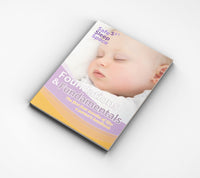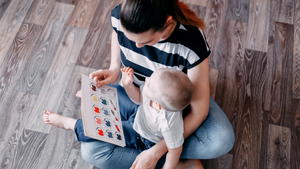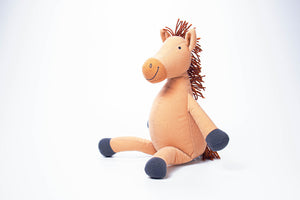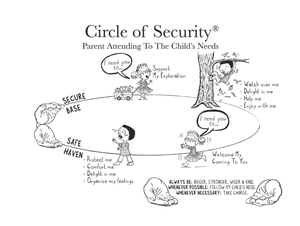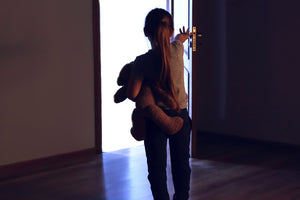The importance of play in early childhood development

Play in a child’s day is essential to their health and wellbeing. Far from being just time wasting, play, in all its forms, helps children grow and develop. Play also helps to support connections to form in a child’s brain which brings lifelong benefits in terms of their social, emotional and cognitive development.
As adults we also benefit sometimes from playful activities and a chance to reconnect with our own ‘inner child’.
As children grow, they evolve through different types of play. Babies do not have the skills to share or be considerate of other people’s feelings. Babies tend to play alone or alongside others. Only with time and maturity do children learn how to take turns and interact in more complex ways.
Why play is important
Play is sometimes described as a child’s work. This is because it needs to occupy much of their time, often changing from simple activities to ones which are more challenging. As a child matures, their play evolves to include greater complexity, though simple play does not result in less important outcomes. Often, it is the predictability of doing something which results in an outcome e.g., cause and effect which helps to reinforce concepts in a developing child’s mind.
The best type of play is initiated and driven by the child, this is commonly called free or unstructured play. This is where the child makes up their own mind about what they want to do and are led by their imagination. Childhood educators often prefer a play based approach to learning because of the positive outcomes.
Free play is only possible in safe, supervised environments where adults are present but take a step back to allow their child space to explore and do their own thing. Many of the benefits of free play happen in the moments before an activity even starts and where a child’s mind is activated.
Structured play is play which is planned and organised by an adult. This also has lots of benefits because it helps to introduce different possibilities and challenges. When play is shared between a parent and their child, their relationship is supported to become stronger.
Depending on a child’s age and stage of development, a combination of free and structured play provides lots of opportunity for growth.
Benefits of play
- Helps to develop social skills, communication and confidence.
- For children to learn about their abilities, what they can do and what they would like to do.
- To know where boundaries lie which helps children to feel safe and secure.
- To learn about other people and their feelings and needs. This helps to build empathy and social skills.
- Supports social skills and communication.
Types of play
- Gross motor or large body movement type play.
- Fine motor play e.g., writing, drawing, threading and puzzles.
- Imaginative play either alone or with others.
How to play with your baby
Take some time each day just to have fun with your little one. You’ll be busy doing lots of caregiving tasks but include some windows of time to just enjoy each other.
Read to your baby from birth and watch for their responses. Simple stories with bright, colourful pictures are best and will get your baby’s attention.
Avoid spending too much money on expensive, ‘educational’ toys. Familiar household objects such as brightly coloured plastic containers, boxes and different textures will grab your baby’s attention.
Massage your baby and take your time during baths and nappy changes. Use gentle strokes, play some music, sing and make up funny rhymes.
Tummy time each day will help your baby to develop upper body and neck strength. A couple of sessions of tummy time each day is better than one long episode.
Talk to your little one, watch for their responses and be sensitive to the cues and signals they give you.
Rattles, soft toys – especially ones with faces and eyes - are always popular.
How to play with your toddler
Have a range of toys and play equipment your toddler can use. Aim for a balance of indoor and outdoor activities so your toddler can move between them.
Where possible, let your toddler take the lead in their play. You’ll find that throughout the day they’ll have times when they want to play alone, interact and/or play alongside you and other people.
Be prepared sometimes to initiate a play activity and then follow your toddler’s lead in where it ends. Toddlers have their own mind and a drive for independence which sometimes leads to emotional meltdowns. Be open to how play activities begin and end.
Support your toddler’s imagination with a range of large and small toys and household objects. Make your house ‘toddler proof’ so you’re not constantly needing to redirect them. Gates and safety catches are essential for the toddler years.
Pencils, playdough, paints and simple puzzles will all help your toddler’s fine motor and developing literacy and numeracy skills.
How to play with your preschooler
Arrange ‘play dates’ so your toddler can learn what’s involved in taking turns and sharing.
Recycle everyday household objects like milk bottles, plastic containers, boxes and buckets. Washing baskets, a mop or broom, kitchen utensils and cubbies made from everyday objects are always popular.
Organise a dress up box to build on imaginative play.
Go to the library and share story time together.
Take a walk to the local park.
Go for a swim and if you don’t have your own pool, investigate local pool options.
In summer, encourage your preschooler to get outside and have water play. A hose and different sized containers are all great options to help support your preschooler’s creativity.
Play in Early Education and Care Settings
When your child attends an Early Education and Care Setting Play is important in their learning and is in fact reflected in the National Early Years Learning Framework (EYLF). Educators respond to children’s ideas and play and use intentional teaching to scaffold and extend children’s learning.
Importantly
Have fun and value the importance of play in your child’s life. Follow their lead on what interests them and give them space to have some alone time as well as opportunities to play with others – each is equally as important.
References
Importance of play for babies & children | Raising Children Network
Importance of play for children I Starting Blocks
Responding to Childrens Play – Early Childhood Australia NQS PLP e-Newsletter No. 34 2012
Written for Safe Sleep Space by Jane Barry, Midwife and Child Health Nurse.
